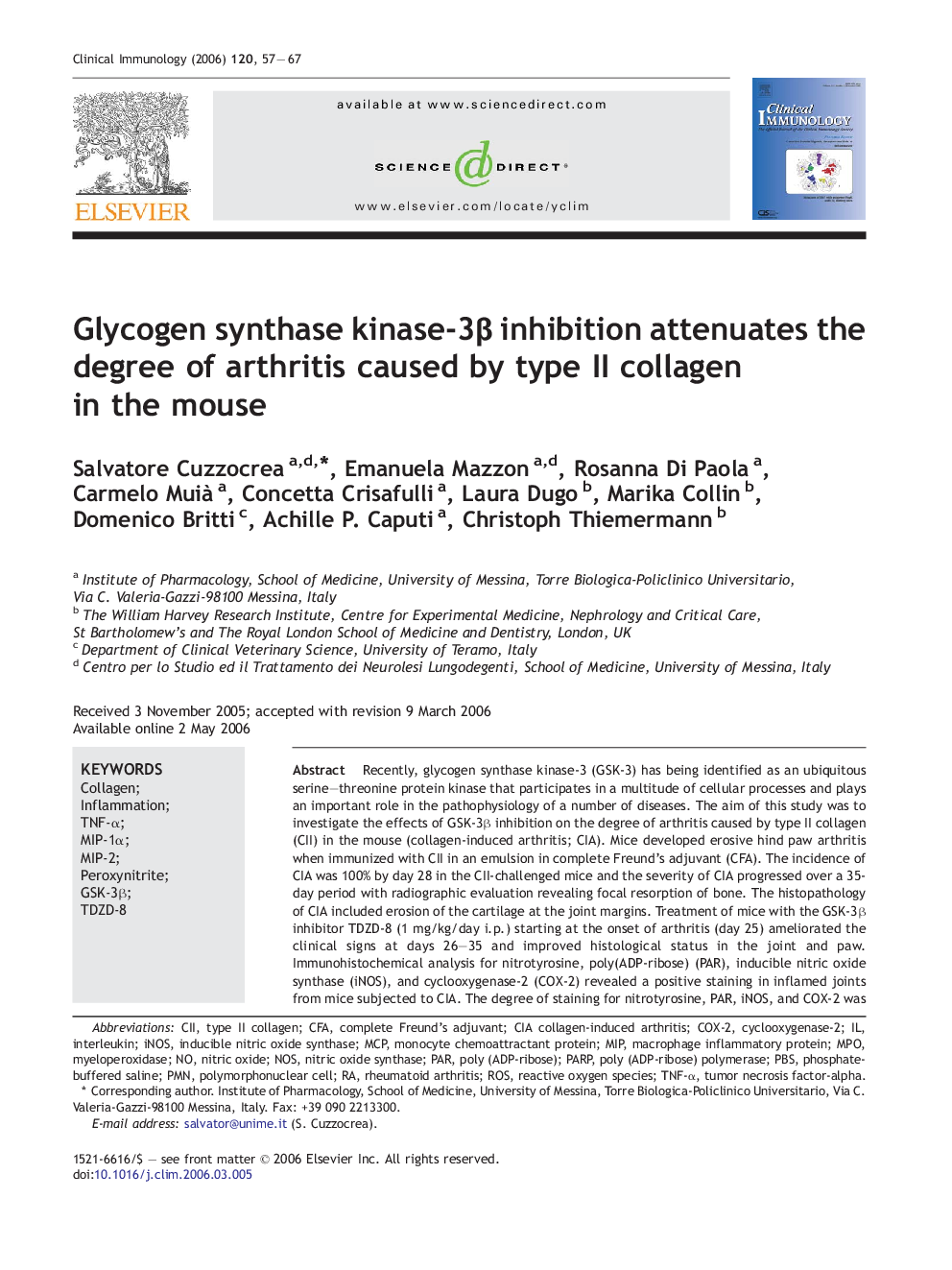| Article ID | Journal | Published Year | Pages | File Type |
|---|---|---|---|---|
| 3258733 | Clinical Immunology | 2006 | 11 Pages |
Recently, glycogen synthase kinase-3 (GSK-3) has being identified as an ubiquitous serine–threonine protein kinase that participates in a multitude of cellular processes and plays an important role in the pathophysiology of a number of diseases. The aim of this study was to investigate the effects of GSK-3β inhibition on the degree of arthritis caused by type II collagen (CII) in the mouse (collagen-induced arthritis; CIA). Mice developed erosive hind paw arthritis when immunized with CII in an emulsion in complete Freund's adjuvant (CFA). The incidence of CIA was 100% by day 28 in the CII-challenged mice and the severity of CIA progressed over a 35-day period with radiographic evaluation revealing focal resorption of bone. The histopathology of CIA included erosion of the cartilage at the joint margins. Treatment of mice with the GSK-3β inhibitor TDZD-8 (1 mg/kg/day i.p.) starting at the onset of arthritis (day 25) ameliorated the clinical signs at days 26–35 and improved histological status in the joint and paw. Immunohistochemical analysis for nitrotyrosine, poly(ADP-ribose) (PAR), inducible nitric oxide synthase (iNOS), and cyclooxygenase-2 (COX-2) revealed a positive staining in inflamed joints from mice subjected to CIA. The degree of staining for nitrotyrosine, PAR, iNOS, and COX-2 was significantly reduced in CII-challenged mice treated with the GSK-3β inhibitor. Plasma levels of tumor necrosis factor (TNF)-α and the joint tissue levels of macrophage inflammatory protein (MIP)-1α and MIP-2 were also significantly reduced by GSK-3β inhibition. These data demonstrate that GSK-3β inhibition exerts an anti-inflammatory effect during chronic inflammation and is able to ameliorate the tissue damage associated with CIA.
